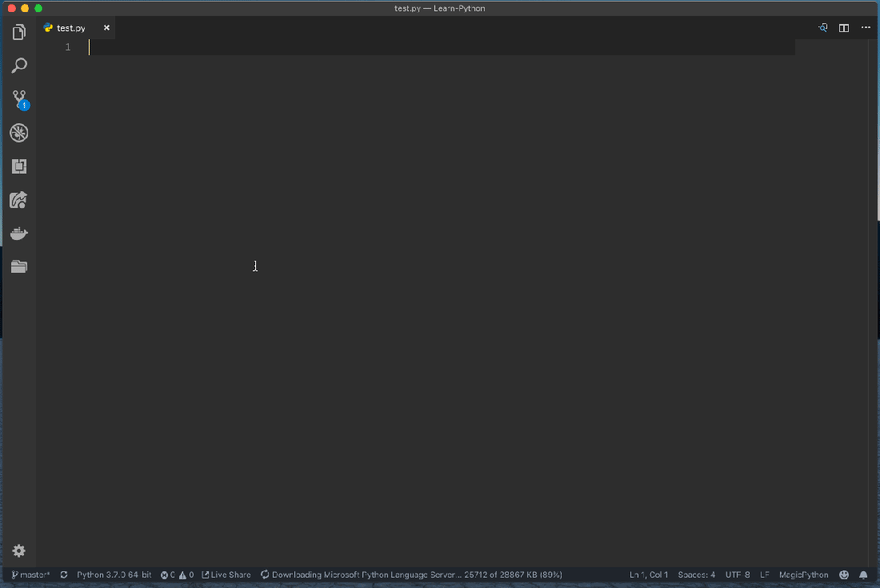I’ve loved the idea of the Atom editor since I saw the initial announcement video three years ago:
I used it on and off as a text editor since it was released. Sure, it was sluggish, but I didn’t think too much of it. I used Atom for a text-based productivity system a couple years ago, when I couldn’t find a cross-platform task management system I liked. At some point, I decided to try something a little more responsive, and lightweight.
All the cool kids seem to be using Visual Studio Code, and they love it. There’s certainly a lot to like about Microsoft’s (mostly) open source code editor. It’s lightweight, extensible through a range of really good extensions, it’s cross-platform, and free.
I used it for a while, and enjoyed it. As a newbie coder, it gives me a lot of feedback as I poke around at my coding projects. This can be really helpful, for sure. That’s probably one of the reasons I used VS Code for as long as I did (and why I still have it installed on my laptop). Of course, another reason why I used it is that a number of developers I follow have raved about it.
I initially moved off VS Code, and returned to Atom earlier this year when I started using a more powerful MacBook Pro, and felt drawn back to Atom for some reason. Part of the reason was that a Markdown extension I relied on in VS Code stopped working for me (at least when I used it in conjunction with Alfred.app that I use heavily for my work).
When I came back to Atom, I noticed how well some of the packages I installed seemed to fit into how I worked. The Markdown Writer package, for one, has become one of my favourite packages, just because it makes it easier for me to write in Markdown.
There was certainly a point where I was concerned about Atom’s ongoing development, and how seemingly simple issues didn’t appear to be addressed. I received some good feedback on this, and moved on.
One of my colleagues recommended Sublime Text, so I spent some time testing it out. I love how quickly it starts up, how similar it is to Atom (well, more the other way round). At the same time, I’m not sure I can justify paying the cost for Sublime Text because Atom does want I want to do, with less of the fiddling I need to do to Sublime Text to configure it for how I like to work (mostly keybindings, and Markdown support).
It’s not that Sublime Text isn’t worth the $80 license fee, it really is (and I agree with paying for good quality software). Even though it took me a few weeks to configure it to work pretty well for me, there are little features that I absolutely love. One little one that I discovered is how it automatically closes HTML tags when I start typing closing tags. These little things are awesome, and bring a little more joy to my day.
In the meantime, Atom has been improving with each release. Sure, it doesn’t have all the tips and feedback that VS Code, and it loads a little slower (although not as much as it used to). I don’t mind that as much actually. I stick with Atom because it works for me.
It fits into how I write Markdown, works well enough for me when I switch over to CSS, HTML, Python, shell scripts, JavaScript, and so on. On those occasions when I need extra help, I may dip back into VS Code, or give Sublime Text another go.
I’m also just figuring out how to “hack” this “hackable text editor for the 21st Century”, and I really enjoy this sort of freedom with my text editor. There’s still so much I can learn about how to use my editor more effectively. Another colleague pointed out a really cool Emmet feature that just blew my mind.
So, in a time when everyone seems to be flocking to VS Code, I thought I’d add my vote for Atom. I’m still a fan, thanks GitHub!




Top comments (4)
Very true, I use vscode cos that's what everyone I work with uses but I still find myself going back to sublime
well cos of live share and other things